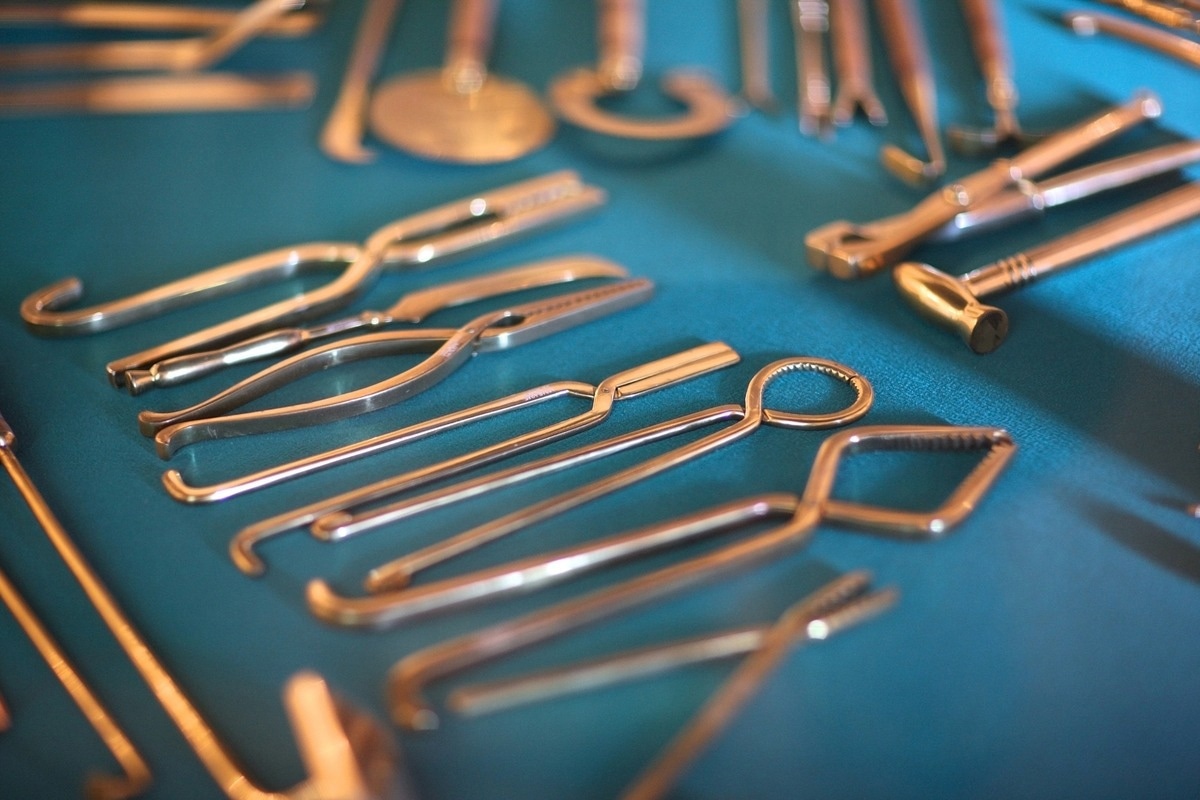Introduction
Ancient Mesopotamia
Hippocrates and Ancient Greece
Medical Origins from Ancient Egypt
Conclusion
References
Further Reading
Ancient medicine has evolved over time, some practices were bizarre, whereas some we use even now, from the concept of informed consent to several medicinal ingredients. Decades and centuries of research have birthed what we now call modern medicine. But how many of those ancient practices do we still use today to treat various illnesses? Do we still make use of healthcare practices invented in ancient Greece and Egypt?
 Image Credit: Africa Studio/Shutterstock
Image Credit: Africa Studio/Shutterstock
Ancient Mesopotamia
In ancient Mesopotamia, treatment was administered by two specialists, one exorcist and, one physician. Although we have let go of the former, the latter is still in place. Their medical texts go back to the 2nd millennium BCE. Mesopotamians also practiced prophylaxis. They understood that diseases could spread and even evacuated whole villagers when they sensed an infectious disease. They even performed minor surgeries such as lancing boils and setting limbs. They may have acquired these skills while treating war causalities.
Hippocrates and Ancient Greece
An astounding figure who made a mark in the history of medicine is Hippocrates. He was a Greek physician born around the year 460 BC. Hippocrates is also known as the father of modern medicine. Hippocrates transformed the theocratic medicine into modern medicine and was the first to introduce the concept of ‘physis’. He formulated professional standards and ethical practices in medicine that are still valid today.
Hippocrates coined the Hippocratic Oath which serves as a moral and ethical code for medical practitioners. It is in use even today. Several terms used in modern medicine come after Hippocrates such as Hippocratic finger, Hippocratic succession, Hippocratic bench, and many more.
The ancient Greeks believed that the mind and the body should be in harmony, hence the phrase “Healthy mind in a healthy body”. This has proven to be true today in various circumstances as shown by recent research. One such is research where they proved that the students with higher fitness levels performed better academically.

 Read Next: History of Women in Medicine
Read Next: History of Women in Medicine
Greeks treated mental illnesses just like physical diseases. Hippocrates even classified mental disorders as Mania, Melancholy, Phrenitis, Insanity, Disobedience, Paranoia, Panic, Epilepsy, and Hysteria. Several of these terms are still in use today.
Hippocratic medicine is based on evidence-based knowledge. The Greek physicians were required to give a detailed medical history, which is similar to the current research protocol. In order to give diagnoses, the physicians were asked to record geographical location, age, gender, habits, diet as well as menstrual changes, appetite, sleep duration, mood swings. In the detailed physical examination, paralysis, respiration, fever, sputum, urine, vomit, were assessed. A diagnosis was given based on the results of these examinations and a treatment plan was made. This series of practices have formed the basis of modern clinical medicine.
Hippocrates introduced many medical terms that are still used universally, such as sepsis, trauma, diagnosis, symptom, therapy. Furthermore, he described many diseases such as diabetes, coma, paralysis, mania, panic, hysteria, epilepsy, gastritis, enteritis, arthritis, cancer, eclampsia, et cetera.
Many medical inventions and healthcare practices of ancient Greece paved a way for modern scientific medicine.
 Image Credit: Sebastian Duda/Shutterstock
Image Credit: Sebastian Duda/Shutterstock
Medical Origins from Ancient Egypt
Another ancient civilization that had great knowledge about medicine was Egypt. They diagnosed and treated several diseases which are recorded in the medical papyri. They sourced their therapeutics and ingredients for remedies from a variety of plants, animals, and minerals. After testing, scientists discovered that a lot of these ingredients are still used today for similar treatments. For example, in ancient Egypt vitiligo was treated using Ammi majus fruit. Recently scientists have extracted 8-methoxypsoralen from the fruit in order to treat vitiligo and psoriasis.
Another commonly mentioned ingredient in Egyptian prescriptions is Ziziphus spina (nebes). It was prescribed to treat several types of inflammations. Recently, two compounds have been identified in the plant, gallocatechin, and epigallocatechin. These compounds are related to the expression of 79 inflammation-related genes.
Furthermore, six mechanisms of action of wound healing properties of honey have also been reported. It was widely used in ancient Egypt as an antimicrobial agent and was applied to wounds.
Remains have been found that show that amputations and even brain surgery were performed. Wooden prosthetic limbs have also been identified. They had a good knowledge of anatomy and performed bone setting, sutured wounds, and surgically opened boils and abscesses to drain them using linen. They fixed dislocated shoulder using a method that is similar to today’s Kocher method. A dislocated mandible was also reduced using the similar method we use today.
Ancient Egyptians used many instruments such as metal scalpels, dental pliers, scales, linen bandages, catheters, clamps for stopping blood flow, specula, lancets for opening veins, phials, scissors, sponges, and forceps. Many of these instruments are still used in the present day.
 Image Credit: Anna Jurkovska/Shutterstock
Image Credit: Anna Jurkovska/Shutterstock
Conclusion
As we have seen the basis of a lot of the medical practices that we currently use was founded in ancient times. The roots of the concept of diagnosis and prognosis go back to Hippocrates. Many medicinal ingredients we use currently were prevalent in ancient Egypt. Susruta, a physician in ancient India is notable for performing rhinoplasty and cataract surgery. Many of our healthcare practices lay their foundation in ancient times.
References
- McIntosh, J. (2005). Ancient Mesopotamia: New Perspectives. ABC-CLIO. Pp – 273. https://books.google.co.in/books?id=9veK7E2JwkUC&q=science&redir_esc=y#v=snippet&q=science&f=false
- Orfanos, CE. (2007). From Hippocrates to modern medicine. Journal of the European Academy of Dermatology and Venereology. https://doi.org/10.1111/j.1468-3083.2007.02273.x
- Askitopoulou, H., & Vgontzas, A. N. (2018). The relevance of the Hippocratic Oath to the ethical and moral values of contemporary medicine. Part I: The Hippocratic Oath from antiquity to modern times. European spine journal : official publication of the European Spine Society, the European Spinal Deformity Society, and the European Section of the Cervical Spine Research Society. https://doi.org/10.1007/s00586-017-5348-4
- Kleisiaris, C. F., Sfakianakis, C., & Papathanasiou, I. V. (2014). Health care practices in ancient Greece: The Hippocratic ideal. Journal of medical ethics and history of medicine. https://www.ncbi.nlm.nih.gov/pmc/articles/PMC4263393/
- Mark, J. (2017). Egyptian Medicine. World History Encyclopedia. https://www.worldhistory.org/Egyptian_Medicine/
- Metwaly, A. M., et al. (2021). Ancient Egyptian medicine: A review. Saudi journal of biological sciences. https://doi.org/10.1016/j.sjbs.2021.06.044
Further Reading
Last Updated: Jun 29, 2022